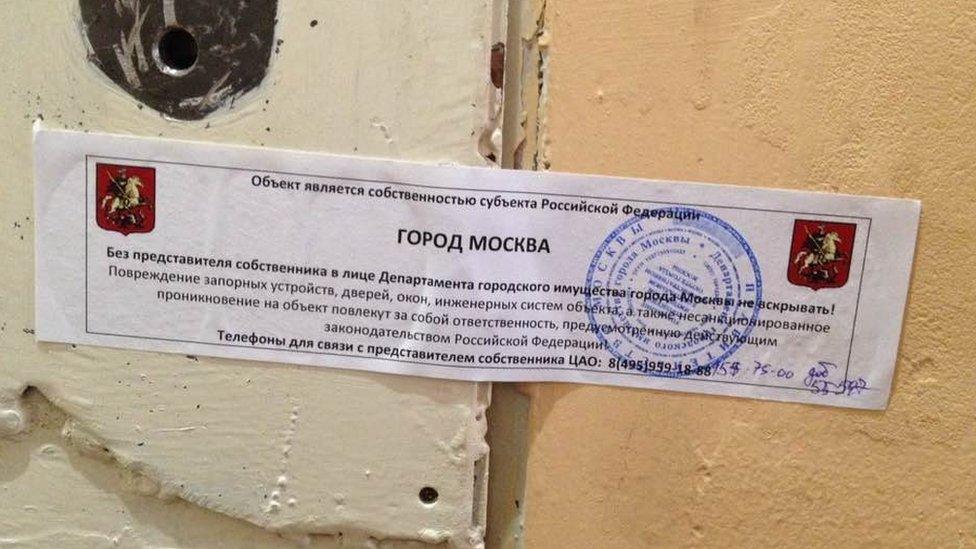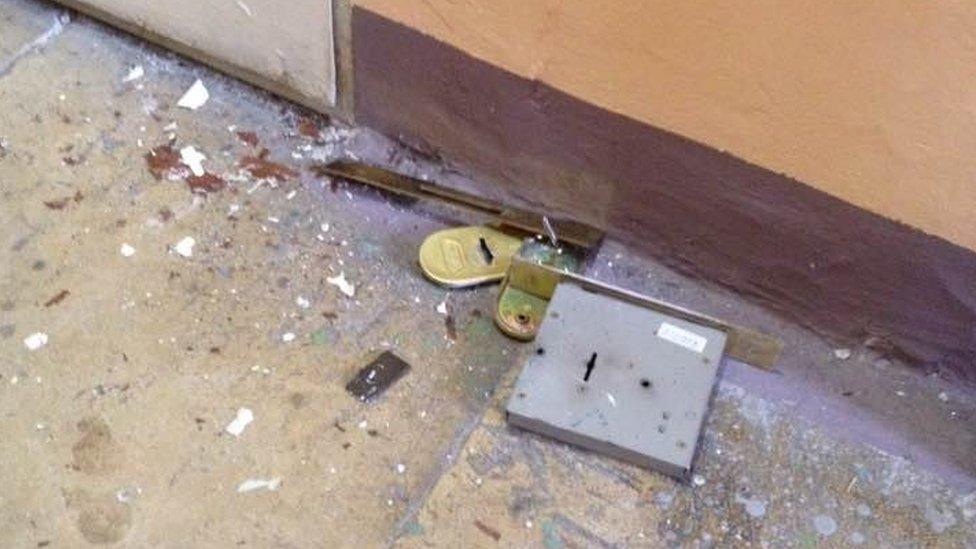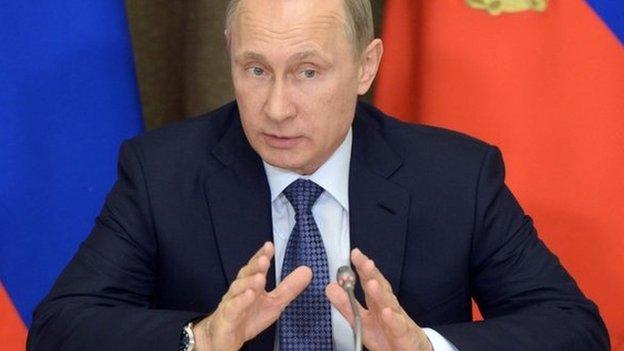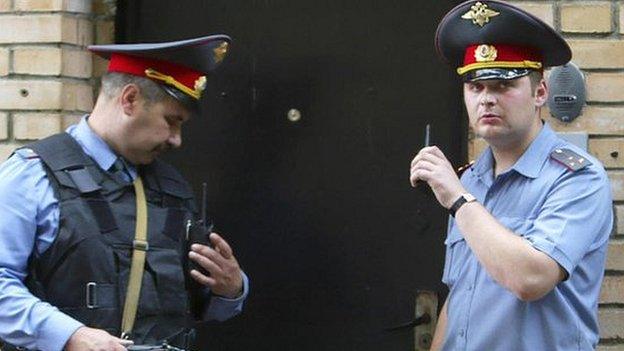Amnesty International's Moscow office 'sealed by authorities'
- Published

The director of Amnesty's Moscow office, Sergei Nikitin, posted a picture of the city's official seal across the office door on Facebook
Amnesty International's office in Moscow has been sealed off by the city authorities, say members of staff.
Arriving for work on Wednesday, they found official seals placed across the office entrances, the locks had been changed and the power was cut off.
Amnesty, which has been strongly critical of the human rights situation in Russia, said it hoped there was "a simple administrative explanation".
Moscow's city authority said later that Amnesty's lease had expired.
The office was no longer subject to "contractual relations" and had ignored a debt notice, the council told independent TV internet channel Dozhd. It added that "the presence of third persons in it was illegal".
Amnesty has in the past complained of harassment by the authorities in Russia.
Its Moscow director, Sergei Nikitin, posted photos of the seals and discarded locks on Facebook, external.
His colleague, Alexander Artemyev, told Dozhd that the organisation had been renting an office belonging to Moscow's department of city property for 20 years and had always paid its rent on time.
'Unwelcome surprise'
The organisation says it is hoping to meet municipal authorities on Thursday to try to resolve the situation.
John Dalhuisen, Amnesty International's Europe director, said the move was an unwelcome surprise and no prior warning was given.
"Given the current climate for civil society work in Russia, there are clearly any number of plausible explanations, but it's too early to draw any conclusions," he said in a statement, external.

Mr Nikitin's pictures showed the apparently discarded locks lying on the floor
President Vladimir Putin's spokesman said he had no information about what had happened.
"This is the first time I've heard about it," Dmitry Peskov told journalists, according to privately-owned Russian news agency Interfax.
Tough new laws
Laws require all NGOs receiving any overseas funding to register as foreign agents and so face restrictions.
The Russian authorities say the law is needed to protect Russia from outside attempts to influence internal politics, but many organisations complain the law is used to try to clamp down on their activities.
Last year, Russia passed a law allowing foreign organisations to be banned from operating in the country if designated as "undesirable" on national security grounds.
At the time, Mr Nikitin condemned the law as "another sobering sign of how the Russian authorities are quickly closing in on fundamental freedoms and the work of independent civil society groups in the country".
- Published24 May 2015

- Published15 May 2015
